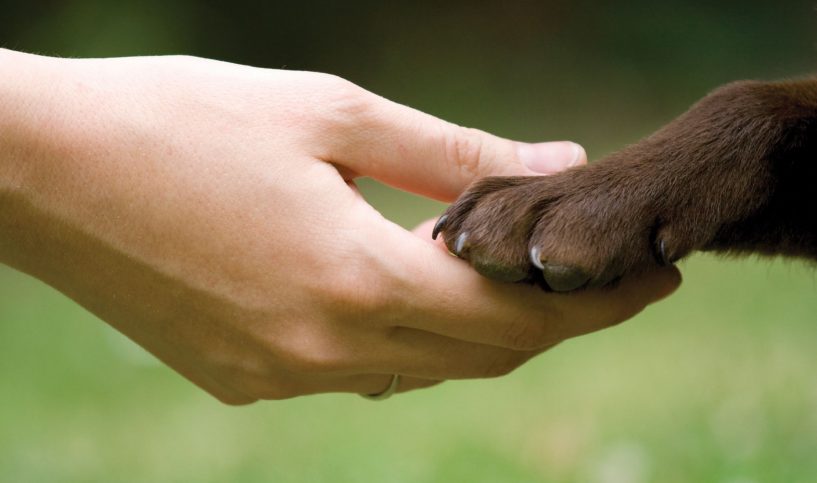By Abrar AlShammari
There are an endless list of ‘causes’ that social groups all over the world are advocating for, calling for affirmative action for a diversity of issues. This includes calls to end child abuse, domestic abuse, animal abuse, racial discrimination, religious intolerance, educational equity, women’s rights and gender equality, freedom of sexuality, freedom of expression through the press and other forms of media, and countless other causes that activists dedicate their lives to. The aforementioned causes were not listed in a particular order; in other words, no cause carries more significance than another. All deserve an equal amount of respect and attention, because they are all efforts exerted by individuals attempting to better our global community – if we were to reach a point where all of these calls are met, we would finally be able to live in a world where the amount of suffering would be considerably reduced.
In August, the animal-loving community of Kuwait was appalled to see graphic photos of stray dogs evidently wounded by bullets. A professional shooter went on a killing spree shortly after a four-year-old child was allegedly attacked by a pack of stray dogs; the shooter declared it to be a campaign that would obliterate all the stray dogs of the country, in the name of ‘avenging’ the child’s attack. Shortly after, a copy-cat ‘campaign’ ‘inspired’ by the professional shooter’s ‘glorious’ cause performed a similar stunt but with different tactics: they ran over stray dogs with their cars, then decapitated them to finish them off. Two things that both of these ‘campaigns’ have in common? One: they targeted stray dogs. Two: they were confident enough to boast about their actions on social media by posting graphic photos and videos of shot dogs and decapitated heads. Naturally, what ensued was a rigorous discussion, which questioned mercy – in terms of religion in particular, and humanity in general – as well as state protection of animal rights (if any). One of the results of this discussion was word reaching Animal Cruelty Exposed, a global animal rights watch with over 100,000 readers – predominantly a Western audience.
The goal of that kind of exposure is normally to shame the State of Kuwait into taking action, so to speak. Ideally, it would first shame the citizens, who would not want their hometown to be labeled as a merciless bystander that protects bloodthirsty ‘athletes’, and then allows them to represent that state at world-distinguished competitions, despite abusing their gun permits and misrepresenting the sport itself. Next, it would be the citizens themselves that would demand action, demand an end to the brutality, and a constructive solution to the issue of stray dogs – one that would not harm other creatures in the process.
Like I said, ideally that is what would happen. Realistically? Quite a few citizens were offended at the exposure itself; why should we display our dirty garments to the world? We should keep our flaws and our shameful coping methods within our own community. That way, we can preserve our ‘methods’, and our image of being decent, ‘civilized’ human beings – even if the truth is far from that. In other words, people were more focused on the fact that the global community was looking down on us because of this exposure, one that many locals unfortunately dismissed to be trivial and insignificant. The bigger picture was completely brushed off. Instead, people were asking, “This is what you choose to focus on? Animal rights rather than human rights?”
The major fault in the statement above is that it prioritizes one cause over another. It suggests that those advocating for animal rights care more for four-legged creatures who “add nothing to our community” and “can be easily replaced” than they do for “Muslims in Burma” and “Kuwaitis arrested for demanding further democracy”. It creates a connection between the two that is simply nonexistent, and makes an assumption that cannot be proven.
Emanuel Kant, renowned philosopher said, “He who is cruel to animals becomes hard also in his dealings with men. We can judge the heart of man by his treatment of animals.” From personal experience, I can actually say that those who demand the protection of animal rights usually support the protection of all vulnerable Earth-walking creatures; women, children, refugees, trees, elderly citizens, be it whoever. I do not say this out of prejudice, but out of an understanding of the mercy that a human being learns from being kind to a creature that can neither harm you nor thank you; to give something to someone without asking for anything – including acknowledgment and praise. Of course, this isn’t necessarily a rule; Hitler loved his two German Shepherds quite dearly and his level of compassion wasn’t skyrocketing, but I would like to think that his case was an exceptional one.
We cannot progress as a society if we do not support one another; putting each other down based on ‘which cause you take up’ may very well lead to that cause being crossed off the list of issues being solved. Then who wins? Your ego?
Realistically, it is impossible for a single individual to take up all causes. Some are capable of taking up more than one because their conscience tells them they need to find a way of distributing themselves to whoever needs their voice. But again, it is literally impossible to run after each and every one – and it does not make that individual a bad person for not being able to. It simply makes them human.










